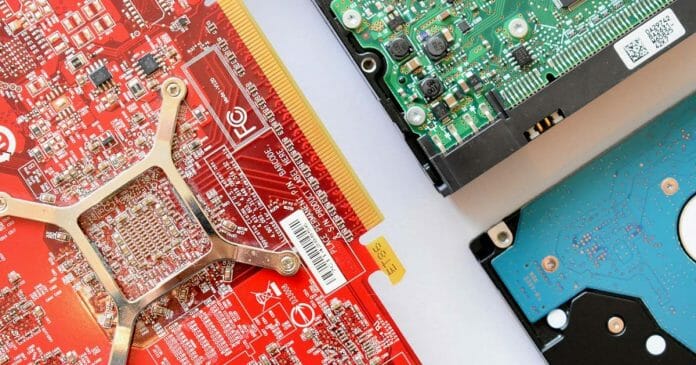Under the new restrictions for technology decoupling, mainland Chinese companies will no longer be able to buy U.S.-made supercomputer chips, GPUs for AI applications, and equipment to make advanced logic and memory chips. AI and supercomputer chip makers in other countries (Taiwan, South Korea, Singapore) — including Taiwan’s TSMC — will also be hampered by the new ban if they use technology, software, and equipment from American companies.
As the scale and severity of the new ban is unprecedented, it clearly elevates the U.S.-China tech war to another level. Jon Bateman, a senior researcher at the technology and international affairs program of the Carnegie Endowment for International Peace, pointed out in Foreign Policy (FP) that the Biden administration’s latest curb on China’s technological development, based on the grounds of national security, which is expected to have a serious impact on China’s economy.
Bateman said that the new regulations show that the restrictionists have successfully defeated centrist officials and technocrats, and have mastered the right to speak within the Biden administration, making “accelerated decoupling from Chinese technology” one of the White House’s main policies against China . In the future, the United States is likely to adopt a similar strategy in other fields (such as biotechnology, manufacturing, and finance) to stop China’s technological rise at all costs.
However, this is not the first time the United States has imposed relevant controls on China. In May 2019, the U.S. Department of Commerce added Huawei to the “Entity List”. All U.S. companies must obtain government approval before exporting technology, components and equipment to Huawei, which is essentially a ban on exports. At the same time, the United States has used its dominant position in the global chip supply chain to demand that semiconductor designers and manufacturers stop selling products to Huawei.
Bartman revealed that although the US restrictions on China in the past have been quite provocative, they still have certain limits, but the scope of the new regulations is unprecedented and wide-ranging, which will inevitably affect China’s efforts in artificial intelligence (AI), Developments in e-commerce, cybersecurity, medical imaging, drug discovery, and climate change modeling research, as the country currently cannot produce the advanced chips needed for these industries on its own.
Bateman also mentioned that Washington, in order to justify the need for new regulations, described China’s advanced computing technology as an “urgent military threat,” saying it could help China develop nuclear weapons and monitor advanced networks of dissidents and minorities. In this regard, many US policy analysts also expressed their support for this policy, believing that the policy is very wise, because Beijing has promoted the development of Chinese technology through the theft of intellectual property rights, implicit subsidies and discriminatory regulatory tactics in the past few decades, and then used these technologies to promote the development of Chinese technology.
Many private enterprises may reduce the economic impact of the new regulations through “offshoring” or self-accelerated decoupling from Chinese technology, according to analysts. There could also be a chilling effect between U.S.-China trade. Some expect that Beijing may retaliate by tearing up the audit supervision cooperation agreement recently signed by the two sides and threatening allies such as South Korea, Japan, and Taiwan.
In addition, Beijing can also file a complaint with the World Trade Organization (WTO) on this basis. Bateman noted that most U.S. “techno-nationalist policies” — including export controls, tariffs, and blacklisting — risk violating the WTO’s “principle of non-discrimination,” but the U.S. might also use “to defends the above actions” with the “Security Exception Clause”.
According to Bateman, Xi may take the opportunity to reinforce Beijing’s long-standing argument that American hegemony is trying to stifle China’s normal development. And China, citing the need to use supercomputers for vaccine development and climate science research, sees U.S. export restrictions as hard evidence that hinders it from tackling global challenges.
It is believed that Biden may want to use this to respond to Republicans’ criticism of its weak China policy and to win his midterm election in November. Some political analysts speculate the United States will only increase its confrontation on China in the future. Unless Biden is fully prepared, it may become more and more difficult to explain to the American people why he did it. But for now, the United States must wait and see how other countries react before taking follow-up actions.









